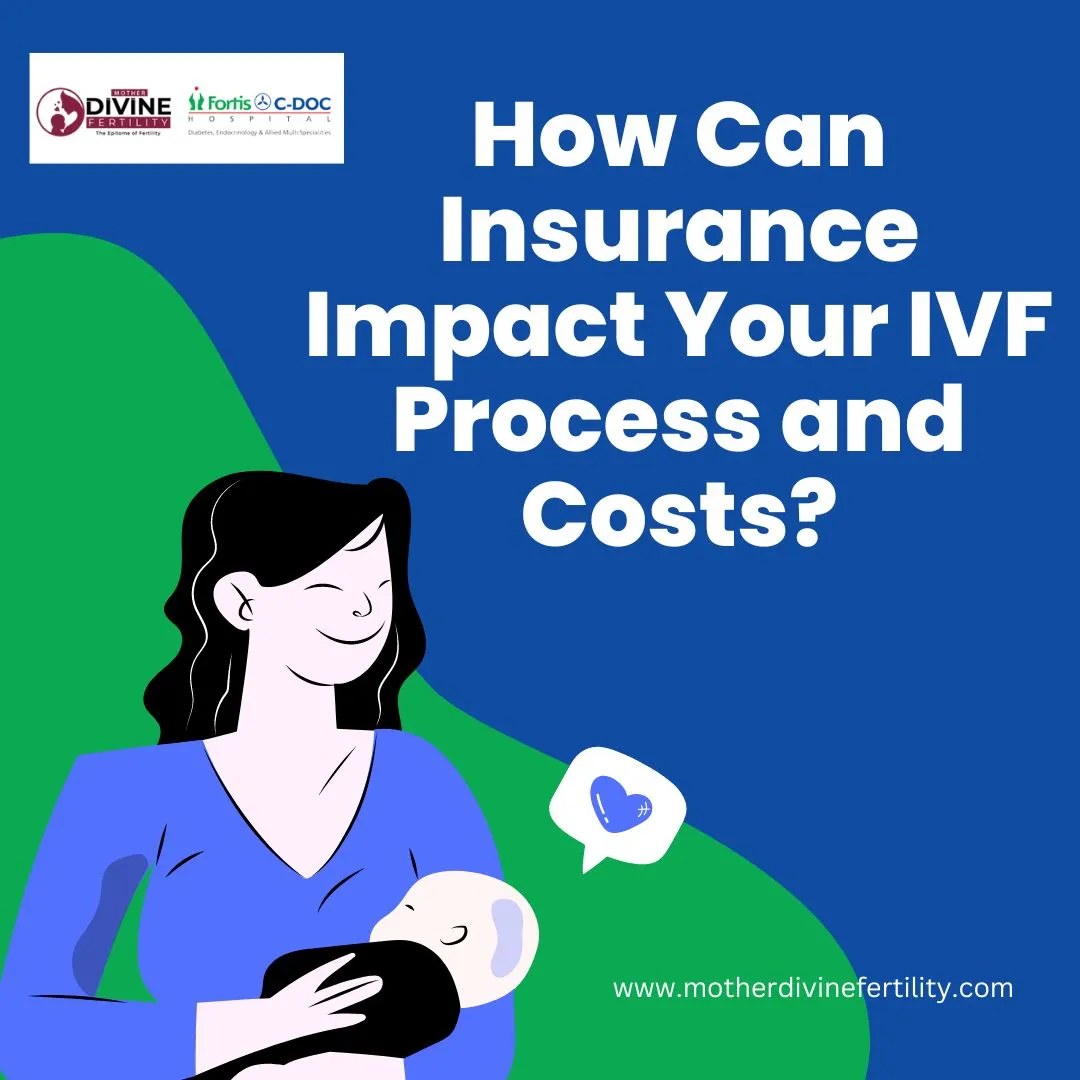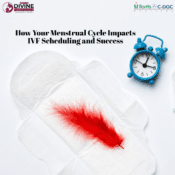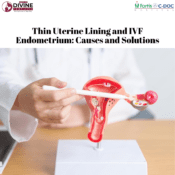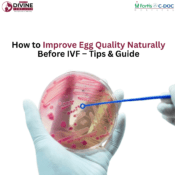

How Can Insurance Impact Your IVF Process and Costs?
The journey toward parenthood can be filled with uncertainty, especially for couples facing fertility challenges. In vitro fertilization (IVF) has emerged as a beacon of hope for many, but the IVF process and cost can be daunting. Navigating the complexities of insurance coverage can further complicate this journey. In this blog, we’ll explore how insurance can impact your IVF process and costs, helping you understand what to expect and how to maximize your resources.
Understanding the IVF Process
Before diving into the specifics of insurance and costs, it’s essential to have a solid grasp of the IVF process itself. IVF involves a series of carefully orchestrated steps, which typically include:
- Ovarian Stimulation: Fertility medications are administered to stimulate the ovaries to produce multiple eggs. This is crucial, as having multiple eggs increases the chances of successful fertilization and embryo development.
- Monitoring: Regular blood tests and ultrasounds are conducted to monitor the development of the follicles (the sacs that contain the eggs). This stage is essential for timing the egg retrieval.
- Egg Retrieval: Once the eggs are mature, a minor surgical procedure is performed to retrieve them. This procedure is usually done under sedation.
- Fertilization: The retrieved eggs are then fertilized with sperm in a laboratory. Depending on the specific circumstances, either traditional fertilization or intracytoplasmic sperm injection (ICSI) may be used.
- Embryo Culture: The fertilized eggs develop into embryos over a period of 3 to 5 days. During this time, embryologists monitor their growth and quality.
- Embryo Transfer: One or more high-quality embryos are selected for transfer to the uterus. This is a simple procedure that does not require anesthesia.
- Pregnancy Test: About two weeks after the embryo transfer, a blood test is conducted to check for pregnancy.
Understanding this process is essential because each stage can incur specific costs, which may be impacted by your insurance coverage.
The Cost of IVF
The IVF process can be financially overwhelming. In India, the average cost of a single IVF cycle ranges from INR 1,50,000 to INR 3,00,000. However, this cost can escalate due to various factors, including:
- Medications: Fertility medications are often a significant expense. The cost of these medications can range from INR 20,000 to INR 1,00,000 per cycle, depending on the specific drugs and dosages prescribed.
- Additional Procedures: Techniques such as preimplantation genetic testing (PGT) or assisted hatching can add to the overall cost.
- Multiple Cycles: Many couples require more than one cycle to achieve a successful pregnancy. This cumulative cost can be substantial.
Given the financial implications, it is crucial to understand how insurance can help manage these expenses.
The Role of Insurance in IVF
Insurance coverage for IVF varies widely, with some plans providing comprehensive coverage while others offer little to no assistance. Here are several ways in which insurance can impact your IVF process and costs:
1. Coverage Levels
Different insurance plans offer varying degrees of coverage for IVF treatments. Some may cover all or part of the IVF process and cost, while others may not cover fertility treatments at all. It’s vital to review your insurance policy carefully to understand what is included.
2. Lifetime Maximums
Many insurance plans have lifetime maximums for infertility treatments. Once you reach this limit, you will be responsible for all additional costs. For instance, if your plan covers up to INR 5,00,000 for fertility treatments and your total IVF process and cost exceed this amount, you will need to pay the difference out of pocket.
3. Co-pays and Deductibles
Even if your insurance provides coverage for IVF, you may still face significant out-of-pocket expenses. Co-pays and deductibles can vary, and understanding these costs will help you budget more effectively. For example, if your deductible is INR 50,000, you will need to pay this amount before your insurance kicks in.
4. Medication Coverage
Fertility medications can be a major part of the IVF cost. Some insurance plans cover these medications, while others do not. Understanding your medication coverage can significantly impact your overall expenses. If your plan doesn’t cover fertility medications, you may want to inquire about alternatives or generic options that can help reduce costs.
5. Pre-approval Requirements
Certain insurance plans require pre-approval for IVF procedures. This often involves submitting medical records, undergoing specific tests, or proving that other fertility treatments have been unsuccessful. The pre-approval process can add delays and complexity to your treatment timeline, potentially impacting your emotional and financial well-being.
Selecting the Right IVF Clinic
Choosing the right IVF clinic is critical to your success. The Best IVF Clinics & Center in Delhi not only offer advanced technology and techniques but often have staff experienced in working with insurance companies. Best IVF Centre in Greater Kailash Delhi Here are some factors to consider:
1. Success Rates
Research the success rates of various clinics. Higher success rates can mean fewer cycles, ultimately leading to lower costs. The Best IVF Center in Delhi will typically have transparent reporting on their success rates, allowing you to make an informed decision.
2. Insurance Partnerships
Some clinics have established partnerships with insurance providers, which can streamline the billing process. These clinics may offer package deals that include medications and follow-up consultations, making it easier to manage costs.
3. Technology and Techniques
Clinics that utilize the latest technology and techniques often achieve better outcomes. Look for clinics that offer services like preimplantation genetic testing (PGT), which can increase the chances of successful pregnancies by selecting the healthiest embryos.
4. Patient Reviews and Testimonials
Reading patient reviews and testimonials can provide valuable insights into the quality of care at a clinic. Positive experiences from other couples can help you gauge the reliability and reputation of the clinic.
Navigating Insurance for IVF
To maximize your insurance benefits for IVF, consider the following strategies:
1. Contact Your Insurance Provider
Before starting treatment, contact your insurance provider to clarify your coverage. Ask specific questions about what is included in your plan, any limits, and the process for obtaining pre-approval.
2. Obtain a Detailed Quote
Request a detailed quote from your chosen Best IVF Clinics & Center in Delhi. This should include all expected costs, such as medications, monitoring, and any additional procedures. Having a comprehensive view will help you discuss potential coverage with your insurer.
3. Explore Financing Options
If your insurance does not cover IVF, explore alternative financing options. Many clinics offer payment plans or financing through third-party lenders. Some may have partnerships with financial institutions that specialize in fertility financing, allowing you to manage costs more effectively.
4. Keep Detailed Records
Maintain thorough records of all treatments, expenses, and communications with your insurance provider. This documentation can be crucial if you need to resolve disputes or file appeals related to coverage.
5. Understand State Laws
In some regions, state laws mandate that insurance providers cover certain infertility treatments, including IVF. Familiarizing yourself with these laws can provide additional options and protections for your treatment plan.
The Emotional and Financial Impact of IVF
While the focus is often on the financial aspects of IVF, it’s essential to acknowledge the emotional toll it can take. The pressure of managing costs, navigating insurance, and coping with the uncertainty of treatment can lead to significant stress for couples Best IVF Centre in south delhi.
Consider implementing the following strategies to help manage both emotional and financial stress:
1. Counseling and Support Groups
Seek out counseling services or support groups for individuals and couples undergoing fertility treatments. Sharing experiences and emotions with others in similar situations can provide comfort and understanding.
2. Mindfulness and Stress Management
Practicing mindfulness and stress management techniques, such as yoga or meditation, can help you cope with the emotional ups and downs of the IVF journey. These practices may also enhance your overall well-being during treatment.
3. Open Communication
Maintain open communication with your partner throughout the process. Discussing your feelings, fears, and expectations can strengthen your relationship and help you navigate the challenges together.
Conclusion
Navigating the IVF process and cost can be overwhelming, but understanding how insurance impacts this journey is crucial for couples seeking to expand their families. By familiarizing yourself with the details of your insurance coverage and selecting the right IVF clinic—especially among the top IVF clinics or the Best IVF Center in Delhi—you can make informed decisions that will support your journey toward parenthood.





